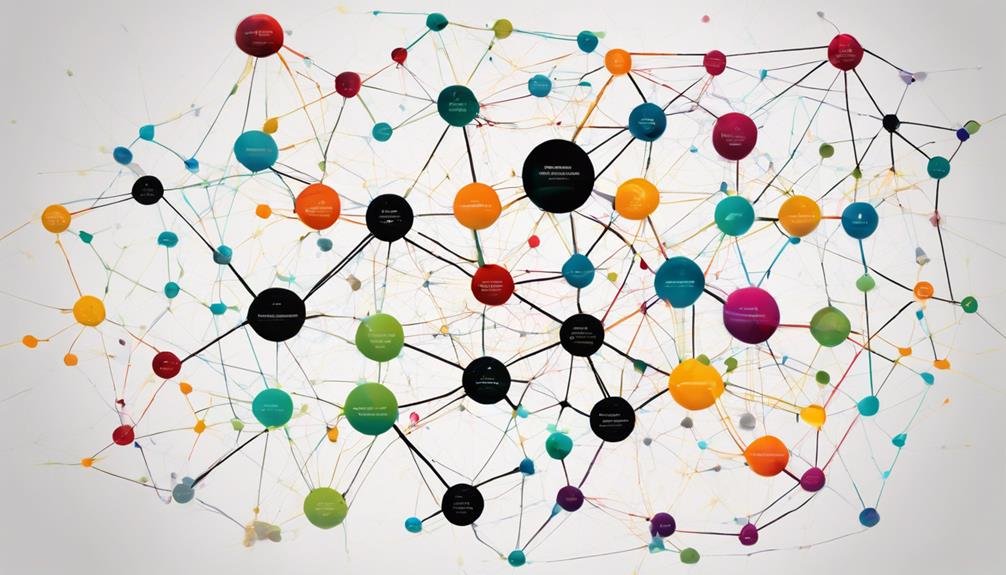The Use of Big Data in Personality Psychology
Incorporating Big Data into the domain of Personality Psychology has opened up new avenues for researchers to explore intricate connections between individuals' traits and behaviors on a large scale. By leveraging vast datasets and cutting-edge analytical tools, professionals can unravel compelling insights into human personality dynamics. The fusion of technology and psychology brings forth a wealth of possibilities, prompting a reevaluation of conventional research methodologies. As you navigate through the complexities of Big Data in personality studies, you'll find yourself at the forefront of a fascinating journey into the depths of human behavior analysis.
Key Takeaways
- Advanced computational methods enhance personality research.
- Social media data mining extracts insights on personality traits.
- Predictive modeling creates accurate personality assessments.
- Ethical considerations prioritize data privacy and consent.
- Future trends focus on machine learning for personalized assessments.
Big Data Analytics in Personality Research
Utilizing advanced computational methods, big data analytics revolutionizes the landscape of personality research by providing unprecedented insights into complex human behaviors and traits. Data visualization methods play a pivotal role in this paradigm shift, allowing researchers to represent vast amounts of data in intuitive and meaningful ways. By visualizing patterns and trends, researchers can identify correlations and relationships that may have otherwise gone unnoticed, leading to a deeper understanding of personality dynamics.
Furthermore, machine learning applications have become indispensable tools in analyzing large datasets in personality research. These algorithms can sift through immense amounts of data to uncover patterns and predict future behaviors based on past observations. Machine learning enables researchers to develop more accurate models of personality traits and behaviors, enhancing the predictive power of their studies.
Social Media Data Mining Techniques
Social media data mining techniques play an essential role in extracting valuable insights and patterns from vast amounts of online user-generated content. By utilizing sentiment analysis, researchers can gauge the emotional tone of posts, comments, and messages, providing valuable information for personality assessment.
Understanding user behavior on social media platforms allows for the identification of trends and correlations between online activities and personality traits. However, it's important to take into account data privacy concerns when mining social media data, as the information gathered can be sensitive and personal. Researchers must adhere to ethical guidelines to make sure that individuals' privacy is protected throughout the data collection and analysis process.
Despite the wealth of information that social media data mining can provide for personality psychology research, maintaining a balance between extracting valuable insights and respecting users' privacy rights is paramount in the evolving landscape of big data analytics.
Predictive Modeling for Personality Traits
Data mining techniques have paved the way for predictive modeling in personality psychology, allowing researchers to develop algorithms that can predict personality traits based on online user behavior. Machine learning plays a significant role in this process, where complex algorithms analyze vast amounts of data to identify patterns and make predictions.
By utilizing machine learning algorithms, researchers can create predictive models for personality assessment, which can provide valuable insights into an individual's traits and characteristics.
Psychological profiling through predictive modeling involves leveraging data science to interpret behavioral cues and predict personality traits accurately. These models are built upon the analysis of various online activities, such as social media interactions, browsing habits, and content consumption.
Through the integration of advanced data analytics techniques, researchers can develop predictive models that offer a deeper understanding of an individual's personality. This approach not only enhances the efficiency of personality assessment but also contributes to the advancement of data-driven research in psychology.
Ethical Considerations in Big Data Usage
Ethics play a pivotal role in the utilization of big data within the field of personality psychology, guiding researchers to navigate the complexities of data collection, analysis, and interpretation responsibly.
When handling big data, ensuring data privacy is essential. Researchers must implement robust security measures to safeguard the confidentiality and anonymity of individuals whose data is being analyzed.
Additionally, obtaining informed consent from participants is imperative. This involves clearly explaining the purpose of the data collection, how the data will be used, and any potential risks involved. Researchers must also allow participants the right to withdraw their consent at any point during the study.
Future Trends in Big Data Analysis
As researchers explore further into the domain of big data analysis within personality psychology, emerging trends are reshaping the landscape of data interpretation and utilization. In the domain of future trends, machine learning applications are poised to revolutionize how personality psychologists analyze and derive insights from vast datasets.
Machine learning algorithms can help identify complex patterns and relationships in data that may not be immediately apparent to human analysts, enabling more accurate predictions and personalized assessments of individual traits.
Moreover, data visualization techniques are becoming increasingly essential tools for interpreting and communicating complex data findings in a more accessible manner. By visually representing large datasets, researchers can uncover patterns, trends, and outliers more effectively, facilitating a deeper understanding of personality traits and behaviors.
Utilizing interactive dashboards, heat maps, and other visualization methods can enhance the interpretability of big data analysis results, ultimately leading to more informed decision-making in the field of personality psychology.
Conclusion
To sum up, the use of Big Data in personality psychology has transformed the way researchers analyze and understand human behavior.
The insights gained from social media data mining and predictive modeling techniques have opened up new possibilities for predicting personality traits with unprecedented accuracy.
While ethical considerations must always be at the forefront, the future of Big Data analysis in personality research promises to revolutionize our understanding of the human psyche in ways we never thought possible.







